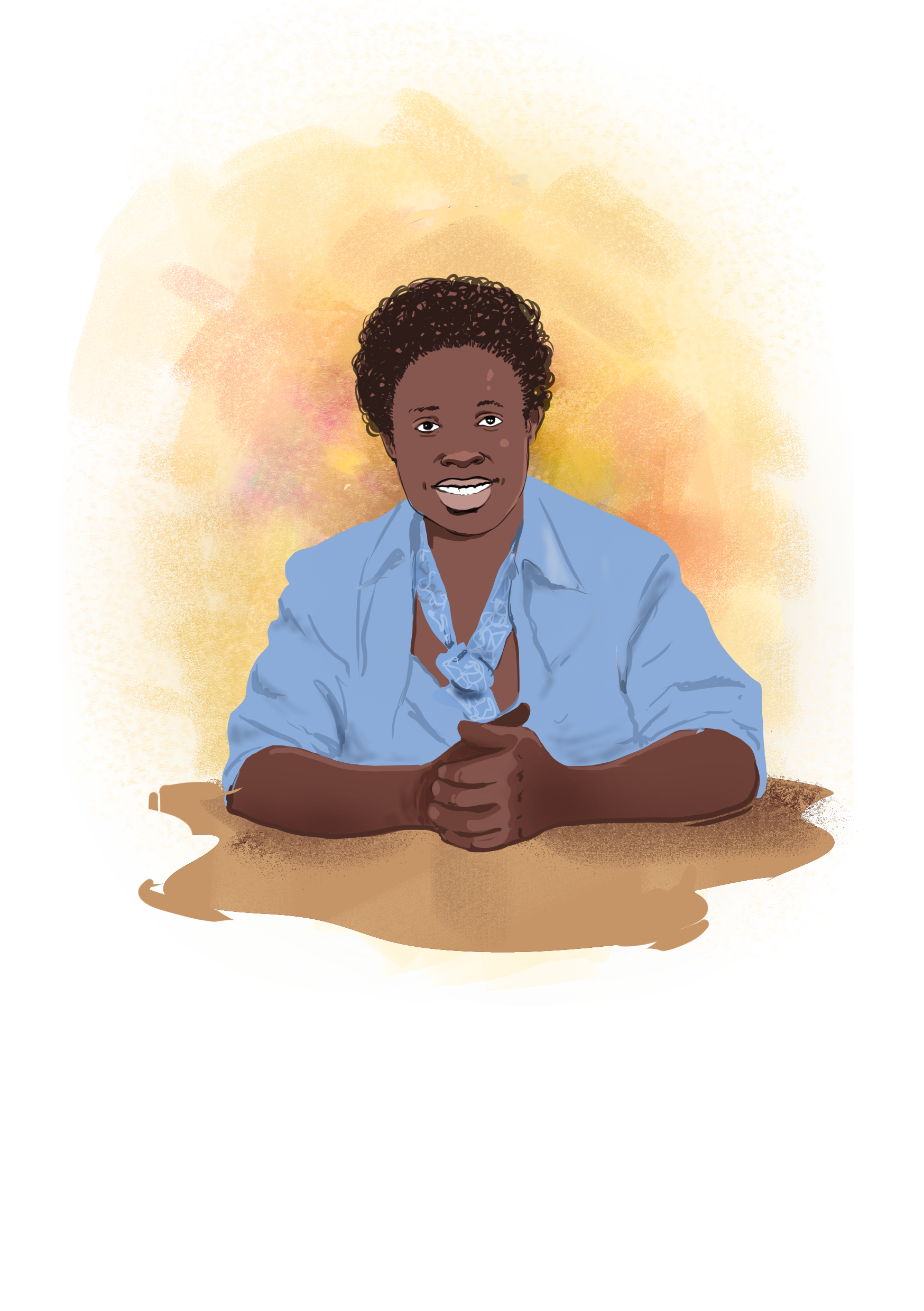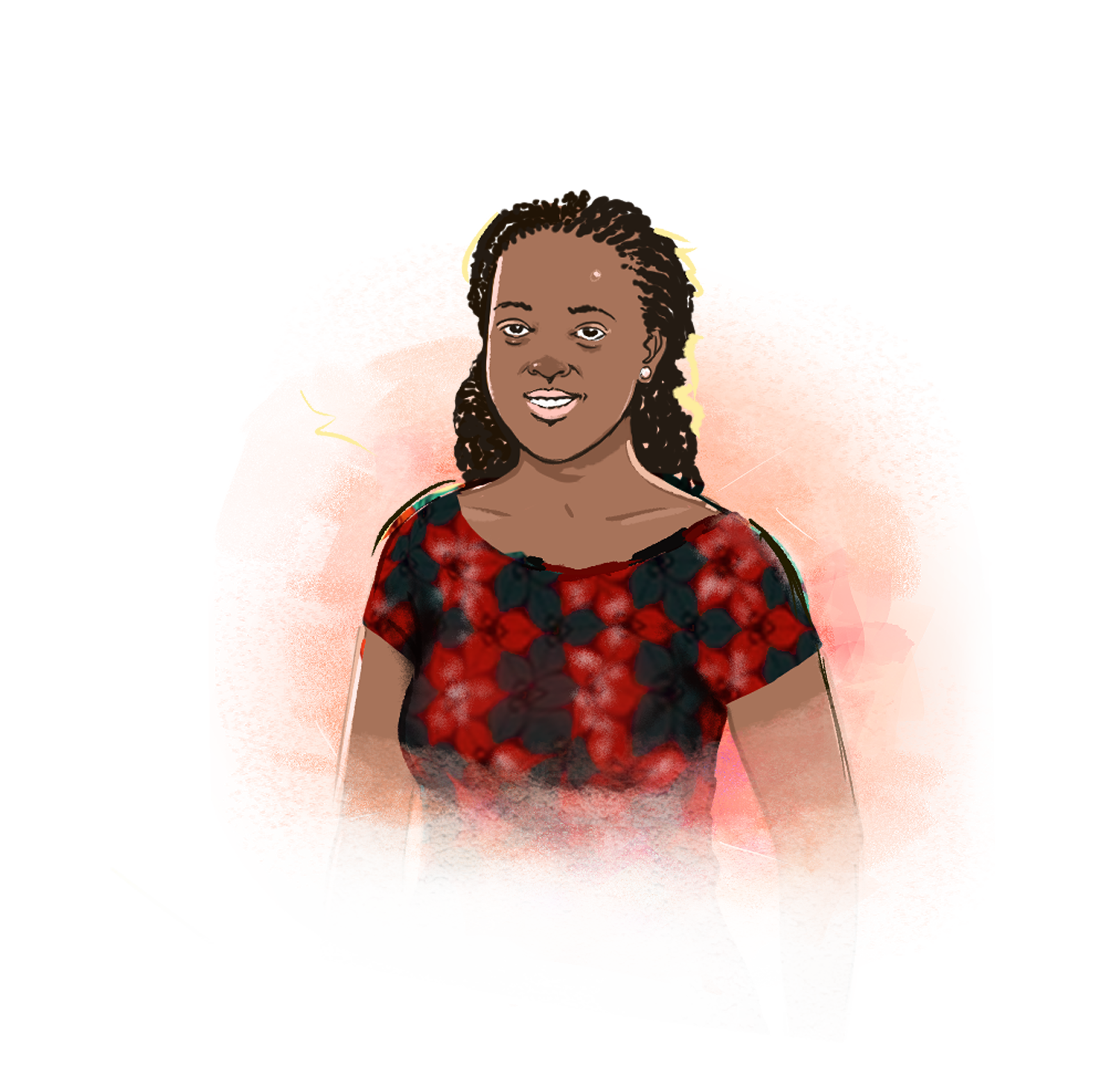Budgeting for Better Outcomes on Women and Girls’ Health and Rights in the Horn of Africa
Date:

“Recently I heard of a girl who was in school taking her final exams and her brothers came in like warriors and took her away to marry her off [...] Child marriage is the beginning of a vicious circle of poverty and contributes to severe reproductive health issues and even death”, Regina Ossa Lullo explains. She is the Director-General for the Ministry of Gender, Child and Social Welfare in South Sudan, and has been working for the Ministry since the country gained independence just over ten years ago. Her days are packed with meetings with visitors wanting the Ministry's expertise on different issues related to gender equality. Recently, she attended a virtual training on gender-responsive budgeting organized by UN Women for 30 government and civil society representatives across the Horn of Africa. In the training, she learned from neighboring countries like Uganda where a budget will not pass unless it is gender-sensitive. Director-General Lullo is confident that gender-responsive budgeting is an essential step toward meeting the needs of women and children in her country.
The virtual Regional Gender Responsive Budgeting Training was part of UN Women’s Programme and Adolescent Health rights in humanitarian settings in the Horn of Africa Region (POWER), which is supported by the Austrian Development Agency. POWER aims to contribute to every woman, every child, and every adolescent girl, demanding her right to quality health services, particularly in humanitarian settings. The training focused on strengthening the participants’ capacity to integrate rights-based health priorities for women, children, and adolescents into humanitarian response plans in the Horn of Africa.
“Gender-responsive budgeting is a process where governments commit to utilizing their national budgets to prioritize actions that address the specific needs of women, men, boys, and girls based on the different contexts they live in”, explains Agnes Kisembo, a UN Women Program Specialist in Uganda with gender budgeting expertise.

Alberta Wambua, the Executive Director of the Gender Violence Recovery Center of the Nairobi Women’s Hospital from Kenya also took part in the regional gender-responsive budgeting training. “Before I participated, my attitude was oh my those budgets, let finance deal with it! Now I understand that budgets are everyone's business,” said Wambua. She is committed to ensuring that everyone in her organization understands what gender-responsive budgeting entails. “I realized that we included different needs of various populations in our programming but our budgets didn’t reflect this, now our thinking has changed. For example, before we had a budget-line on capacity building, now we are more specific, such as the cost for sign-language training so we can better meet the needs of women with hearing impairments”.
The process of gender-responsive budgeting has also opened doors for Wambua and her staff to have deliberate conversations with Kenya county representatives from different sectors to advocate for how projects can be budgeted to meet the needs of diverse women and girls. “Gender-responsive budgeting is a human rights issue and everyone's concern, it is about allocating resources evenly and fulfilling everyone’s potential,” explained Wambua.
“The recipe for gender-responsive budgeting to work is leadership, accountability, and data. The latter is important to be able to understand what the issues are, so the budget allocation meets the actual needs”, Kisembo explains. However, data availability is a concern, especially in humanitarian settings.
“UN Women together with OECD Development Centre convened virtual dialogues on the Social Institutions and Gender Index with policymakers as well as civil society and development partners across the Horn of Africa to raise awareness of the data gaps on women, children, and adolescents, especially in humanitarian settings. The dialogues pointed attention to the discriminatory legal frameworks and social norms that prevent women, adolescents, and girls from enjoying their rights, and showcased examples from the region on how data could be used to shape policy decisions and budget allocations, as in Uganda.,” says Sunita Caminha, Regional Policy Specialist for Ending Violence against Women at UN Women East and Southern Africa.
Director-General Lullo notes that her Ministry needs a more comprehensive set of data to better plan for women and girls to ensure that they can access services and stop practices such as child marriage. Since the training, she is working towards analyzing all government policies and programmes to enable them to have gender sensitive budgeting and further develop plans to ensure all government institutions budgets are gender sensitive as per the principles of gender responsive budgeting . “I would like the budgeting to be gender-sensitive across all sectors in the Government, similar to the process they have in Uganda '', Director-General Lullo concludes.
With the support of the Austrian Development Agency, UN Women is implementing the Programme on Women’s Empowerment in Sexual, Reproductive, Maternal, Newborn, Child, and Adolescent Health rights in humanitarian settings in the Horn of Africa Region (POWER), which focuses on removing the barriers that prevent women, adolescents and girls from accessing their rights to and seeking services for sexual, reproductive, maternal, newborn, child, and adolescent health.